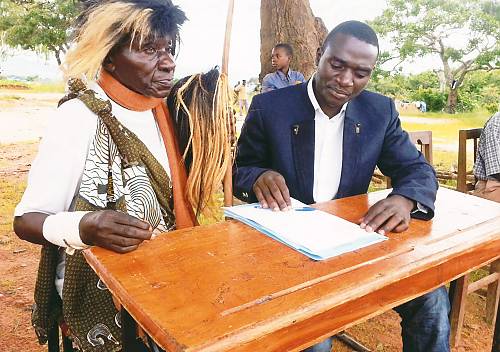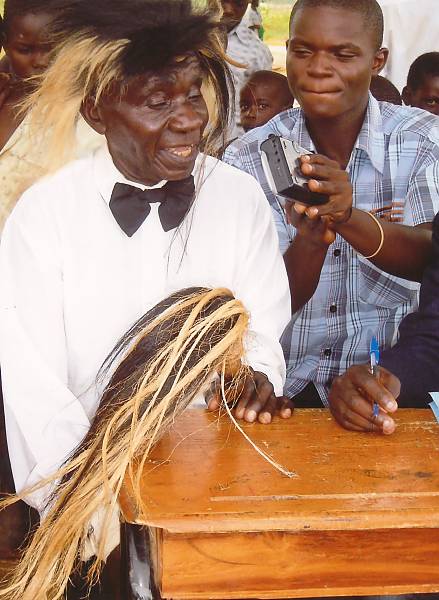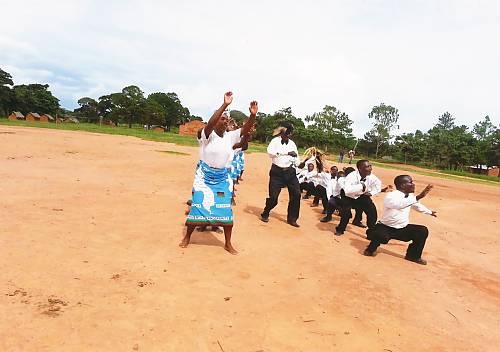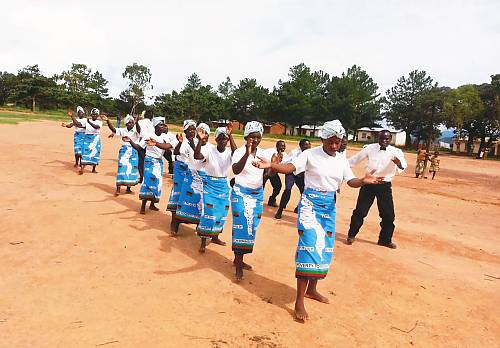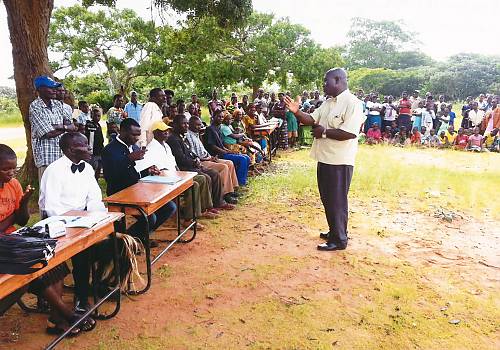Mwinoghe, joyous dance
Inscribed in 2018 (13.COM) on the Representative List of the Intangible Cultural Heritage of Humanity
Mwinoghe is an instrumental dance performed among three ethnic communities – Sukwa, Ndali and Bandya – in the northern region of Malawi. In the Chisukwa dialect, the word ‘Mwinoghe’ literally means ‘Let us enjoy ourselves’: the dance is therefore performed to express joy and happiness. Derived from a ceremonial dance of the neighbouring Karonga district, called Indingala, Mwinoghe is a relatively recent dance. Dancers line up in two rows, with men on one side and women on the other, and perform twisting body and elaborate foot movements. There is no singing; the only sound comes from the three drums, the whistle, and the group leader’s commands. Mwinoghe is performed at social gatherings for entertainment purposes, including on days of national significance. People from all walks of life gather to watch the dance, which serves a unifying function among different communities. Other traditional dances are also organized on such occasions, enabling people to celebrate their different cultures together. Related skills and knowledge are mainly transmitted through observation and participation by young people during performances, but the practice is also integrated into primary, secondary and tertiary-level curricula. Mwinoghe features heavily in annual independence celebrations and individual communities have also created dance groups that perform at annual festivals and on other occasions.

